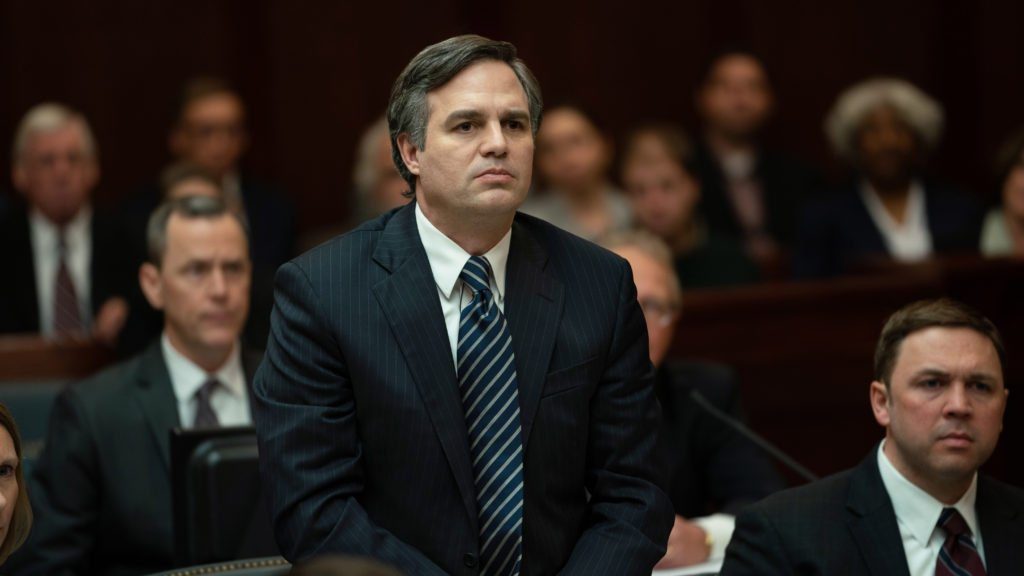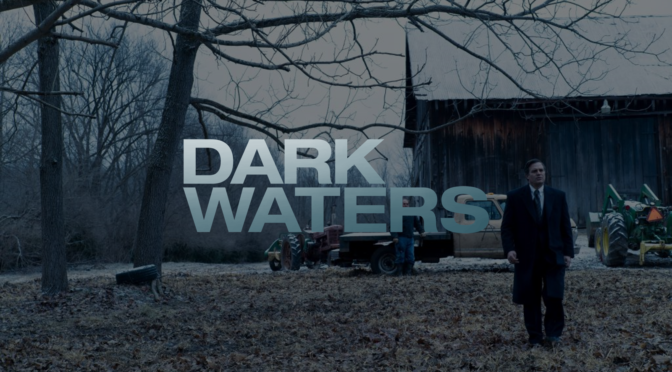A newly promoted partner at a law firm for chemical companies, Robert Bilott (Mark Ruffalo; The Kids Are All Right), is asked by a friend of his grandmother to look into the cows that have died on his farm. Robert, a lawyer that defends chemical companies, has no interest until he visits the site and sees that over a hundred of the livestock have died. The farmer blames the local DuPont plant and as Robert starts to probe further he finds a growing pile of evidence that the company is knowingly dumping a hazardous chemical into the area, risking the health of the town and its people.
Todd Haynes (Far From Heaven) is a strange choice for a director of this material, but he delivers strong results. He is known for anything from biopics featuring Barbie dolls or several actors (of both genders) playing the same character to throwbacks to 50s melodramas. A legal drama is yet another unexpected entry in a filmography that seems to only consist of surprises. As always he gets strong performances from his cast and is able to capture the trust and dependence a small town has on its main employer. DuPont provides jobs to many of the city’s residents and is a central part of their community with buildings and parks named after them. Even when the allegations arise against the company, the people are reluctant to doubt the hand that feeds them.

In many ways, Dark Waters is a more deliberate Erin Brockovich. Like in that film, Robert is fighting against a company for polluting drinking water, but Haynes take a more subtle approach. He focuses on the data gathering, as Robert combs through an entire room full of documents, and the convoluted steps it takes to hold a major corporation accountable. The case spans 20 years and Haynes does an excellent job depicting how draining the constant hurdles and setbacks can be. Ruffalo shows Robert to be increasingly frustrated and almost desperate. He sacrifices other clients, takes pay cuts, ignores his family, and develops health issues due to the stress of case. There is a period of waiting in the trial that is the only point where the drawn out engagement affects the pacing of the film, but even this slowdown appears reflective of the true events.
The film’s main theme is trust. In a frustrated retort, Robert explains that the people in control, governments and corporations, don’t protect people, the people have to protect themselves. The lawyers point out that when the environmental protection agency was first established, it relied on companies to self-report chemicals as hazardous, something they have little incentive to do. They joke about “self-regulation” because they know that companies will prioritize profits over people and even when DuPont is forced to appear in trial, they are able to work with local officials to place regulations that are favorable to them, even though they put people at risk. At its core, Haynes has created an in-depth warning about the dangers of minimal oversight and how corporate cruelty and greed will choose commerce over community if left unchecked.

4/5 stars.
